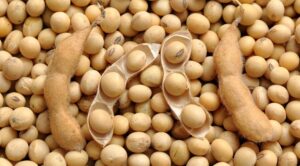
In January-August 2024, Ukraine increased its foreign trade in dairy products by 7.9% to $307 compared to the same period last year, the Union of Dairy Enterprises of Ukraine (UDEP) reported on its Facebook page.
According to the report, the negative balance of exports and imports of dairy products slightly increased compared to the same period last year and amounted to -$32.6 million against -$31.2 million. At the same time, imports were 1.24 times higher than exports; in January-August 2023, this excess was 1.25 times.
According to analysts, exports in January-August 2024 increased to $137.3 million, which is 8.3% higher than in the same period last year.
The growth in exports compared to the previous year was recorded for fermented milk products (+27% in physical terms and +32% in value), whey (+43% and +38%, respectively), and cheeses of all kinds (+40% and +31%, respectively).
At the same time, exports of butter and milk fats decreased significantly (-25%), while the drop in value amounted to 9%, which is explained by a significant increase in prices for these products this year.
Experts noted that import volumes in January-August 2024 increased by 7.6% compared to the same period last year – up to $170 million. At the same time, growth is observed in the categories of butter and milk fats – 2.3 times in volume terms, twice in value terms, as well as cheeses (+8% in volume terms).
Ukraine also reduced imports (in physical terms) of milk and cream not condensed (drinking) by 3.3 times, whey by 28% and fermented milk products by 16%, the UGCC summarized.

In August, China increased exports by 8.7% year-on-year to $308.65 billion, according to the report of the General Administration of Customs of the People’s Republic of China.
Thus, the figure reached its highest level in 23 months. At the same time, the increase was the most significant since March 2023.
Imports increased by 0.5% to $217.63 billion.
Analysts on average predicted a 6.5% increase in exports and a 2% increase in imports, according to Trading Economics.
China’s exports to South Korea last month increased by 3.4%, to the European Union by 13.4%, to the United States by 4.9%, and to ASEAN by 8.8%.
Imports from South Korea increased by 13.3%, ASEAN by 3.5%, India by 3.2%, and Russia by 3.2%. Meanwhile, supplies from the European Union decreased by 4%, Japan – by 3.8%, the United Kingdom – by 2.1%, and the United States – remained unchanged.
China’s foreign trade surplus in August increased to $91.02 billion compared to $67.81 billion in the same month of 2023. The surplus in trade with the United States amounted to $33.81 billion.
In January-August, China’s exports rose by 4.6% year-on-year (to $2.31 trillion), while imports increased by 2.5% (to $1.71 trillion). The foreign trade surplus amounted to $608.49 billion, including $224.57 billion in trade with the United States.

MHP Food and Agricultural Holding, Ukraine’s largest chicken producer, reduced meat exports from Ukraine by 12% to 87,799 thousand tons in April-June 2024.
According to the holding’s report on the London Stock Exchange on Friday, MHP increased poultry production in the European operating segment (PP) to 35.46 thousand tons, up 6.5% year-on-year.
The agricultural holding noted that the volume of meat production in Ukraine remained stable in the period under review at 187.414 thousand tons against 181.69 thousand tons in the same period last year.
At the same time, the average price of poultry meat in Ukraine remained stable and was in line with last year’s figure at $1.97 per kg (excluding VAT). The average price for poultry produced in the European segment also remained virtually unchanged at EUR3.54 per kg compared to EUR3.64 per kg in the same period last year.
MHP reduced poultry exports from Ukraine in the second quarter of 2024 by 12% to 87,799 thousand tons compared to the same period last year.
In January-June of this year, the agricultural holding practically did not change the volume of poultry production in Ukraine – 365.901 thousand tons against 359.332 thousand tons in the same period of 2023. The volume of poultry production in the European segment of MHP increased by 7% to 69,418 thsd tonnes. A year earlier in the same period, this figure was 65,087 thousand tons.
The average price of MHP poultry in Ukraine remained almost unchanged at $1.98 per kg excluding VAT, compared to $1.92 a year earlier. The average price for poultry meat produced in the European segment also remained virtually unchanged at EUR3.49 per kg in the first six months of 2024 (EUR3.58 per kg in the first six months of 2023).
In the first half of 2024, MHP reduced poultry exports from Ukraine by 12% to 185.854 thousand tons. A year earlier, this figure was 212.106 tons for the same period.
The total volume of poultry sales to third parties in January-June 2024 decreased by 8% year-on-year to 327.215 thousand tons, mainly due to a significant decrease in export sales, the agricultural holding explained.
At the same time, the total sales of processed poultry meat in the first half of this year increased by 19% to 20.386 thousand tons due to production growth and further transformation into a culinary company. The average price of value-added products increased by 4% to $2.90 per kg as a result of changes in the product mix.
MHP is the largest chicken producer in Ukraine. The company produces cereals, sunflower oil, and processed meat products.
As reported, the company received $142 million in net profit in 2023 compared to $231 million in net loss a year earlier. The group’s revenue increased by 14% to $3.021 billion last year.
In the second quarter of 2024, MHP earned $29 million in net profit, up 71% compared to the second quarter of 2023. Its EBITDA increased by 40% to $153 million, while revenue decreased by 5% to $770 million. The agroholding attributed the increase in profitability to improved performance in the crop sector.
Overall, net profit decreased by 33% to $45 million for the half-year, due to foreign exchange losses of $81 million against $5 million in the first half of 2023.
EBITDA in crop production increased by 20% to $280 million, while revenue decreased by 4% to $1.489 billion.

The exports of soybeans from Ukraine in the season-2023/2024 reached the record level and amounted to about 3.26 mln tonnes, up 5% from the previous high of 3.1 mln tonnes in 2022/2023 MY, APK-Inform news agency reported.
“The increase in shipments was achieved due to several factors, including the significant increase of the crop harvest in 2023 and the competitive price of Ukrainian soybeans on the global market, particularly in the first half of 2023/24 MY. Thus, in September-February of the last season, the country shipped almost 70% of the total exports of soybeans,” the analysts said.
According to APK-Inform, in 2024/2025 MY Ukraine will export about 3.5 mln tonnes of soybeans, up 7% compared to the last season.
According to them, the increase in exports was mainly due to Egypt (2.1 times more), while shipments to the EU and Turkey decreased by 22% and 26%, respectively.
Experts predict that in the new season-2024/2025, Ukraine has a chance to update the record for soybean exports, given the forecast of an increase in the harvest of this crop to almost 6 million tons, which is 10% more than last year. At the same time, due to the expected increase in global soybean production, it will be harder to compete with prices in the new season, especially in such destinations as Egypt and Turkey.
According to the results of the season-2023/2024, the demand prices for Ukrainian soybeans decreased by an average of $120/ton in line with the global market dynamics and due to the increased competition. Comparing the price levels as of the end of August, this year Ukrainian soybeans of the new harvest are offered to Egypt at $427/ton CIF, while last year in the same period the supply prices on the same basis reached $545-550/ton.
Tovkachevsky Mining and Processing Plant (TMP, Pershotravneve, Zhytomyr region) intends to supply quartzite and crushed stone to WENGA SPOLKA Z OGRANICZONA ODPOWIEDZIALNOSCIA (Poland) for a total of EUR 2 million.
According to the company’s announcement in the NSSMC’s information disclosure system, on September 2 this year, the Supervisory Board of TGOK gave its consent to the Management Board to conduct a significant transaction – the conclusion of a supply agreement between the company and WENGA SPOLKA Z OGRANICZONA ODPOWIEDZIALNOSCIA (Poland).
At the same time, it is specified that the contract is for the supply of the following quartzite products: quartzite TK 97-100 fraction 25-120 mm, 25-100 mm, 25-100 mm, 2 mm; crushed stone fraction 5-10 mm, 5-40 mm, 20-40 mm, 25-60 mm, with a total contract value of EUR 2 million.
“To entrust the Chairman of the Management Board of the company to perform all actions and sign all documents necessary to conclude the above-mentioned agreement for the supply of quartzite products with WENGA SPOLKA Z OGRANICZONA ODPOWIEDZIALNOSCIA (Poland). The market value of the subject of the agreement is EUR 2 million, at the NBU exchange rate as of September 2, 2024, it amounts to UAH 91 million 3.6 thousand,” the company said in a statement.
TGOK is a quartzite mining, processing and beneficiation company. It is the main supplier of raw materials for the production of ferroalloys, refractories and dynamite in Ukraine.
TGOK develops the Tovkachivska area of the Ovruch quartzite deposit located in Pershotravneve village using the open-pit method.
According to the second quarter of 2024, Navaro Development Limited owns 5.1898% of the company’s shares, Lucrino Investments Limited – 9%, Mantara Holdings Limited – 72.0629%, Duxton Holdings Limited (all Cyprus) – 12.1891%.The company’s authorized capital is UAH 1.6 million, the share price is UAH 2.25.

One of the largest grain market operators in Ukraine, Nibulon JV LLC, exported 100 thousand tons of grain to 25 countries using grain carriers and trucks provided by the USAID Ukraine project, the grain trader’s press service reported on its Facebook page.
The agricultural holding recalled that in 2023, Nibulon was forced to switch from water transportation of grain to transportation by road and rail. This alternative solution was helped by the USAID Ukraine economic support project. The Nibulona Project purchased 50 Modern Hope trucks with the capacity to transport 70 tons of grain each. Thanks to this support, Nibulona delivered and exported the first 100 thousand tons of grain to 25 countries.
“We are grateful to our international partners who lend a friendly hand in a difficult time for the company by providing the necessary railcars. This allowed us to continue working, resuming purchases of agricultural products at the blocked river terminals and thus supporting our agricultural partners. The combination of road and rail transport has allowed us to optimize logistics costs and offer purchase prices to farmers that ensure the profitability of their production,” said Nibulon Logistics Director Serhiy Kalkutin and congratulated his colleagues from Danube Transportation.
As reported, in 2023, USAID provided Nibulon with 50 hopper cars built at Karpaty DMZ for grain transportation. In 2024, USAID’s Economic Support for Ukraine provided the grain trader with 13 grain carriers with trailers. “Nibulon also asked the donor organization for assistance in obtaining 250 grain carriers.
Nibulon JV LLC was established in 1991. Prior to the Russian military invasion, the grain trader had 27 transshipment terminals and crop reception complexes, a one-time storage capacity of 2.25 million tons of agricultural products, a fleet of 83 vessels (including 23 tugs), and owned the Mykolaiv Shipyard.
“Before the war, Nibulon cultivated 82 thousand hectares of land in 12 regions of Ukraine and exported agricultural products to more than 70 countries. In 2021, the grain trader exported the highest ever volume of 5.64 million tons of agricultural products, reaching record volumes of supplies to foreign markets in August – 0.7 million tons, in the fourth quarter – 1.88 million tons, and in the second half of the year – 3.71 million tons.
Nibulon’s losses due to Russia’s full-scale military invasion in 2022 exceeded $416 million.
Currently, the grain trader is operating at 32% of capacity, has created a special unit to clear agricultural land of mines, and was forced to move its headquarters from Mykolaiv to Kyiv.